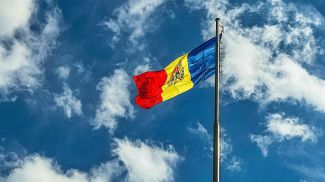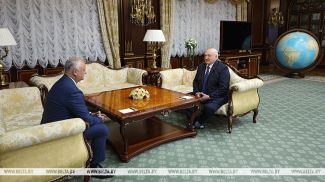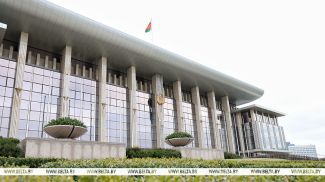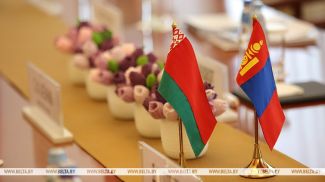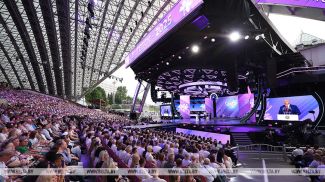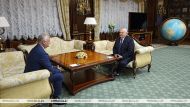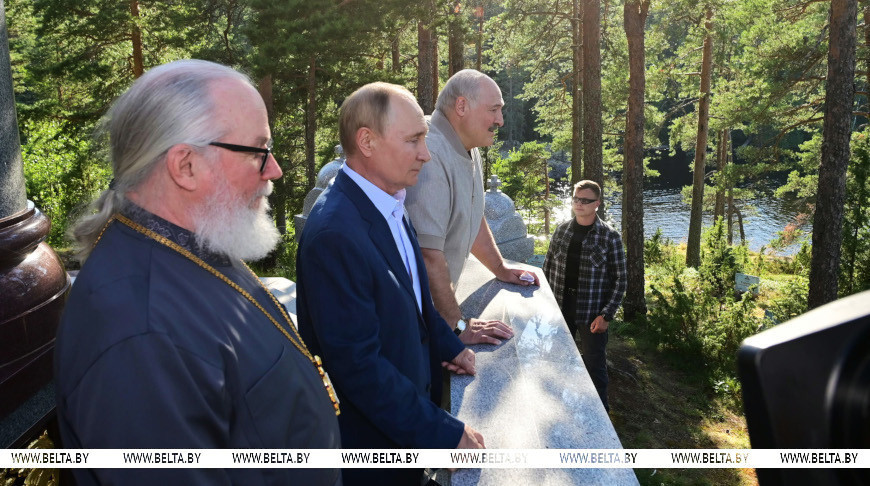
MINSK, 29 July (BelTA) – Belarusian President Aleksandr Lukashenko hosted a meeting on international issues on 29 July. One of the items on the agenda was cooperation with Russia. We look into the agreements reached recently between Belarus and Russia and their leaders and examine the things that still need to be done both for the benefit of both the countries and also ordinary Belarusians and Russians.
The president emphasized that his job is to build a solid foundation for relations with Russia, resolve both strategic matters and also tactical issues. The government is tasked with developing cooperation and negotiating on various aspects.
The president recalled his agreement with his Russian counterpart Vladimir Putin during his visit to Minsk in May this year. "Belarus should be an independent, self-sufficient country with a stable economic basis," the head of state said.
Items on the agenda of the talks
Aleksandr Lukashenko noted that there were three main issues that remained unresolved at the government level and that were discussed at the meeting with the Russian president: a new oil pricing formula, recycling fee and prepayment for oil.
“As is usually the case, you have left some issues unresolved together with the Russian government: the oil formula (new pricing formula), the recycling fee and the prepayment for oil,” the president said as he addressed the participants of the meeting.
“We have discussed all these issues with President Putin. We have agreed that today or tomorrow (depending on how you prepare it) I will send him a written message, a letter, outlining our position on these three issues,” the head of state explained.
As for the prepayment for oil, which is mainly supplied to Belarus by Rosneft, the Russian president got even frustrated with this issue. “What kind of prepayment? We have been working without prepayment all our lives and we can continue to work this way,” the Belarusian leader shared the reaction of his Russian colleague.
As Prime Minister Roman Golovchenko told reporters following the meeting, the oil price formula needs adjusting in view of dynamic changes in the oil market, including in terms of supply conditions and price terms for Russian oil in relation to benchmark grades. "WE need to update the pricing formula so that it takes into account newly emerged factors, and not only those that were in effect when this formula was adopted," the prime minister explained.
Security issues were central to the agenda of the talks. “These issues are not discussed in public,” the president noted. “All security, law enforcement and defense agencies and ministers are involved. So is the Ministry of Foreign Affairs on certain issues.”
“This is the essence of these negotiations. I emphasize once again: mutual understanding has been found on all issues. We are on board with each other on all issues,” the head of state summarized.
About the deadlines
“In the autumn, in the run-up to the 25th anniversary of the Union State Treaty, Minsk will host most important events: a meeting of the Union State Council of Ministers and a session of the Supreme State Council. We have agreed with the president [of Russia] that we settle all outstanding issues by that time: both the issues in the remit of our Security Councils [the agreement on security guarantees] and in the remit of the governments,” the Belarusian leader emphasized.
About strategic tasks and new industries. Lukashenko’s instructions to the prime minister
Addressing Prime Minister Roman Golovchenko, the president pointed out: “In addition to the current agenda (recycling fee, localization of passenger cars, oil refining), you should keep an eye on the strategic tasks in terms of new industries and competencies for the Belarusian economy: aircraft building, microelectronics, machine tool building.”
According to Aleksandr Lukashenko, the Russians are open for cooperation with Belarus, and there is an opportunity for the country to learn, along with space and nuclear energy, completely new competencies that are crucial for the future development of the state. “We have reserves in this direction: in aircraft building, microelectronics, and especially in machine-tool building,” the head of state emphasized.
The president noted that Russian enterprises have a very high interest in domestic engineering products, but in order to keep things this way it is important to invest now in improving technologies and mastering new, more advanced products. “We must move forward. Russians allocate funds for this. We just need to take a good use of this opportunity and grow,” Aleksandr Lukashenko instructed.
About everyday problems of citizens and the task for the Standing Committee
Aleksandr Lukashenko drew special attention of the participants of the meeting to the concrete results that the Union State have generated for ordinary people by its 25th anniversary landmark. The president recalled the assignment to the Standing Committee of the Union State to analyze all aspects regarding equal rights of citizens and urged to pay more attention to solving everyday problems that citizens of Belarus and Russia still face. This is what the Standing Committee under the leadership of Dmitry Mezentsev should be focused on, the president is convinced.
“A lot has been done, but the problems are still many,” the head of state said and named some of them: inspections at airports, roaming that has not been canceled so far, unavailability of rail tickets on holidays (due to lack of train services). “Who is responsible for solving these issues?” the president addressed the meeting.
Aleksandr Lukashenko also touched upon the project to set up a media holding company of the Union State, noting that this work should be significantly intensified.
About the “living fabric” of Belarusian-Russian relations
Following the meeting, Roman Golovchenko explained that there are no pressing unsolved issues between Belarus and Russia now. Work to build the models of cooperation in certain areas between the countries with very close ties is underway. In this process, some issues arise one way or another, including those that need to be resolved at the level of presidents.
“Some issues are solved, new ones arise. This is a living fabric. The relations [between Belarus and Russia] are growing very rapidly, so some issues arise here and there,” Roman Golovchenko explained. “One or another issue is always on the agenda. That's why the presidents meet frequently.”
According to the prime minister, the model of cooperation between the two countries is built in the following way: the presidents discuss certain things, give instructions, outline the main approaches, and then the governments and ministers formalize the agreements reached. “These constructions are not easy. They rely on serious finances, mutual financial, production and logistical support. It all has to be put on paper,” he said.
Speaking about the recent talks between Aleksandr Lukashenko and Vladimir Putin on Valaam, the prime minister said: “The presidents discussed certain things, gave instructions. We will work to implement them together with our Russian colleagues,” he said.




